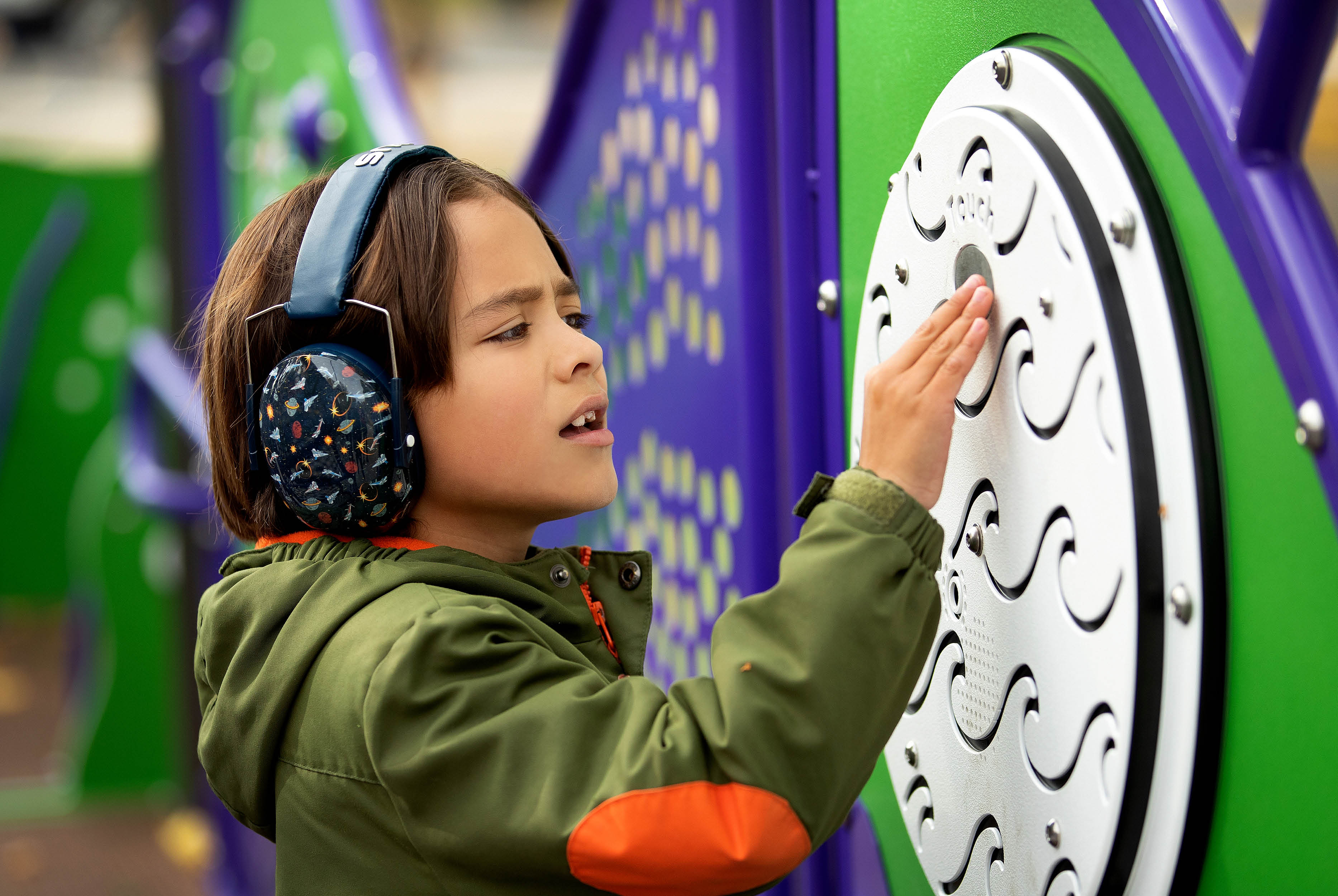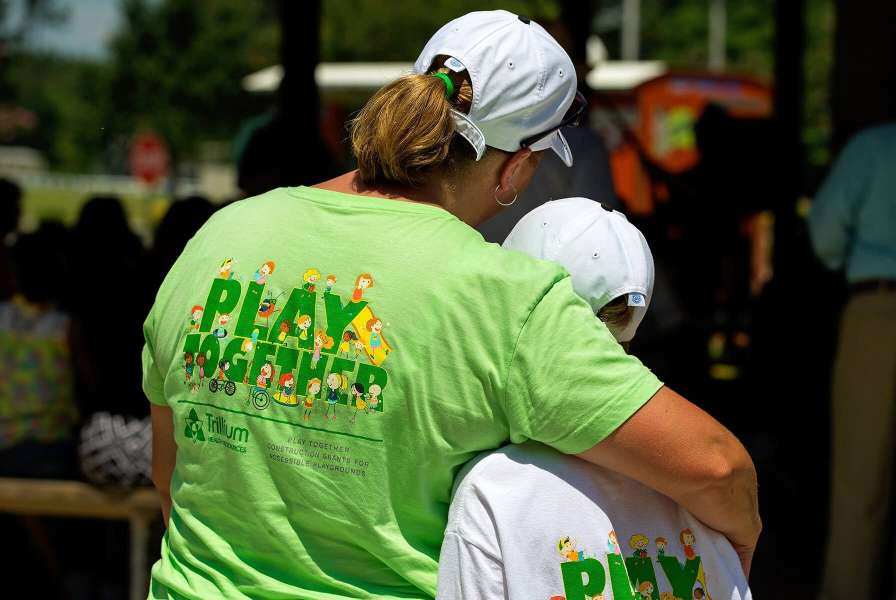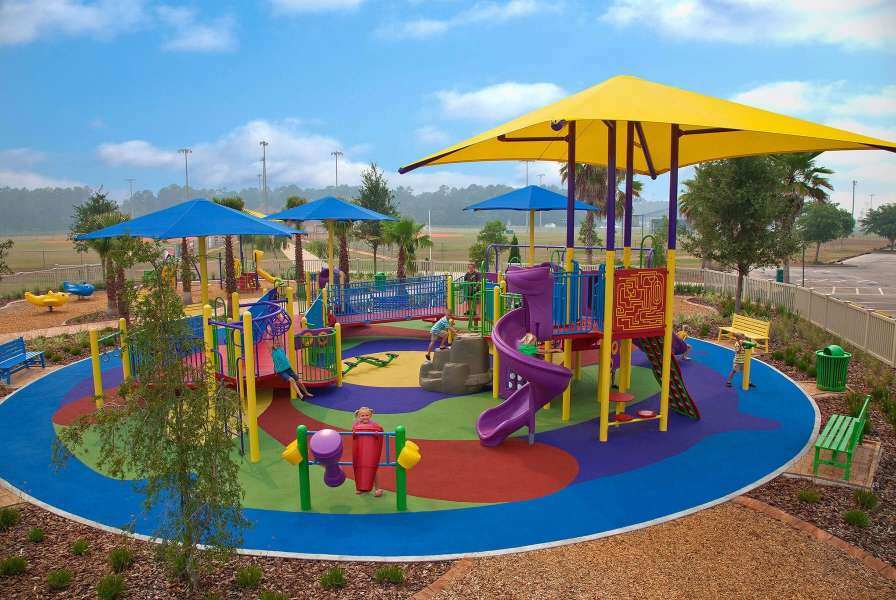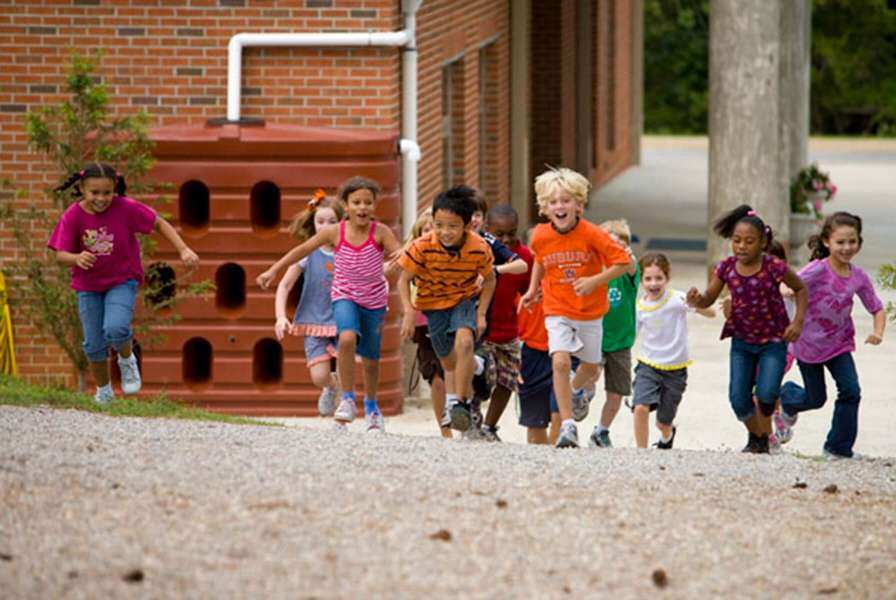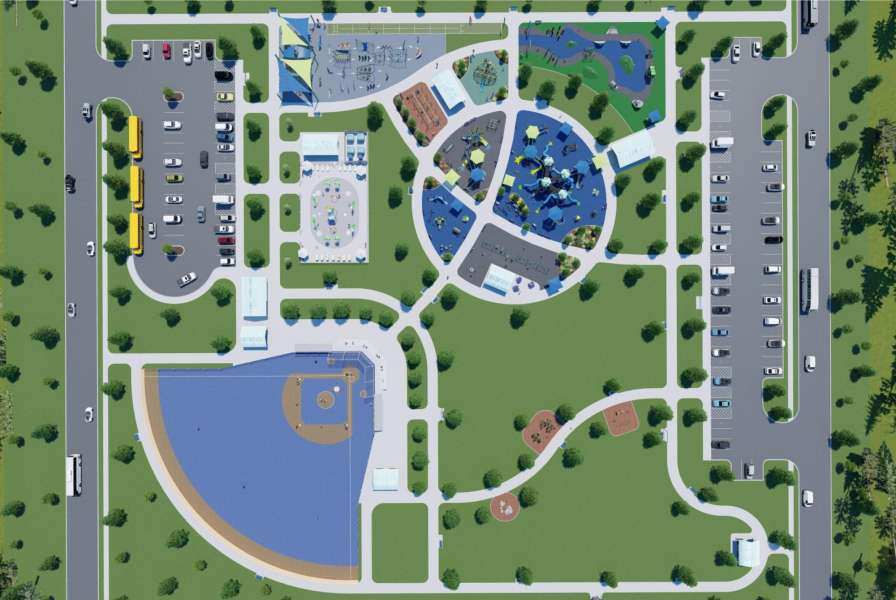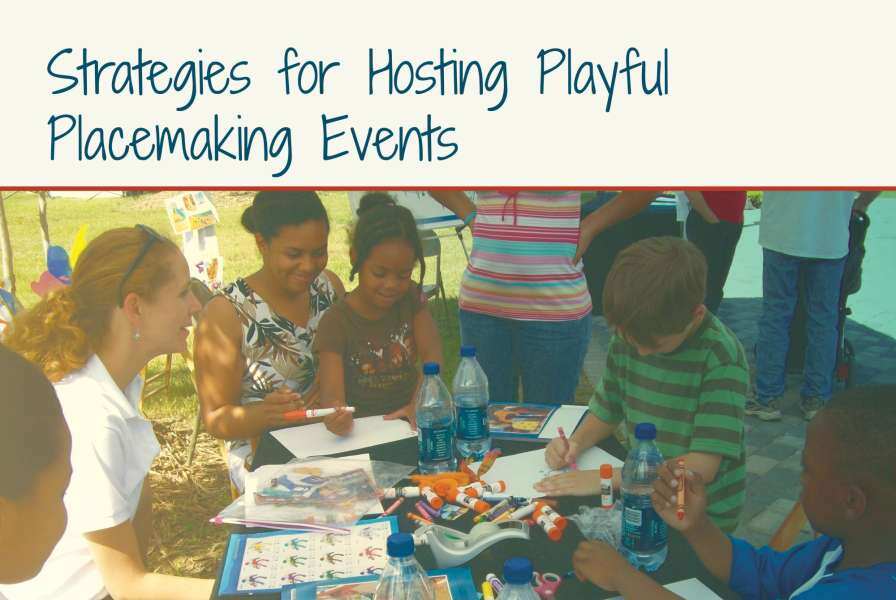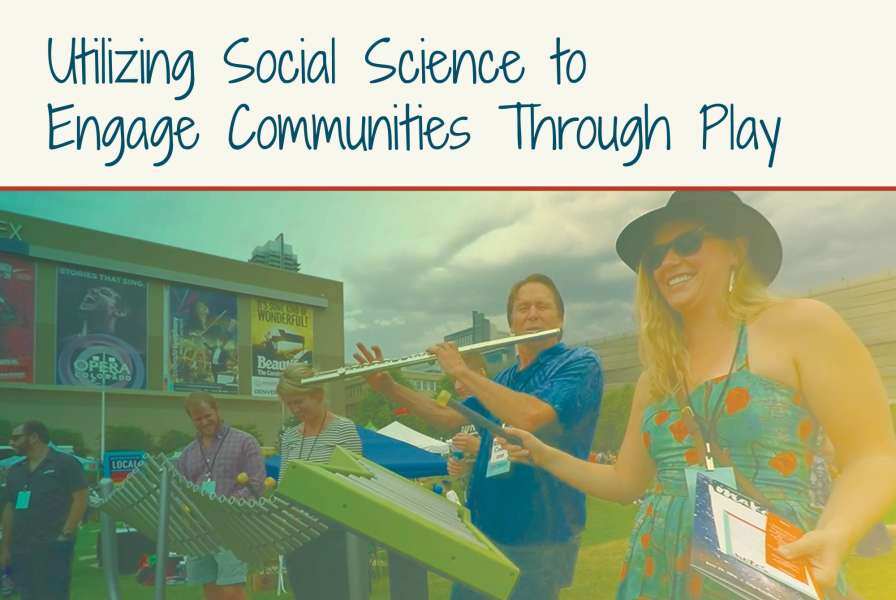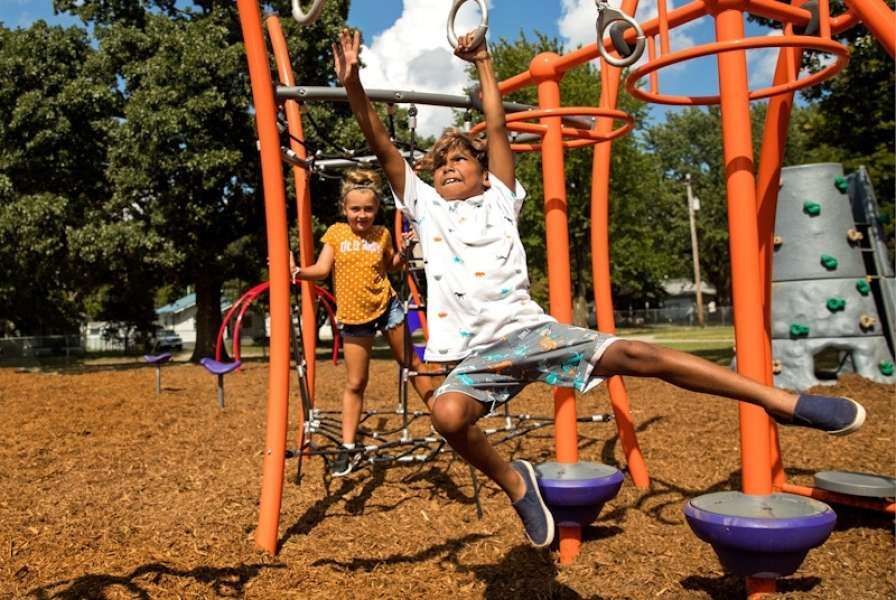Addressing diversity in outdoor play and recreation environments demonstrates how a community respects and values all forms of inherent differences we possess as individuals. These differences might be obvious or invisible, slight or profound, and include age, race, gender, ethnicity, culture, socioeconomic status, or ability.
Disability should be seen as the complex interaction between the features of a person’s body and the features of the environment and society in which they live. We can shift society’s perspective of the word “disability” to be understood as part of the human experience of not being able to equitably participate with others due to the unreasonable or unnecessary demands of the environment. When a narrow skill set is expected or required by the built environment or program to participate, it often creates physical, psychological, and/or social barriers.
Children with and without disabilities visit community playgrounds with family members, caregivers, and friends. All visitors come to the park as unique individuals with their own lived experiences, interests, strengths, and challenges. Though every person is unique, all people want to play, recreate with friends and family, and have fun; and they should have the same opportunity to do so regardless of their differences and similarities.
For over 15 years, PlayCore, has partnered with Utah State University’s Institute for Disability, and scholar, Keith Christensen, PhD; both have made significant contributions in the field of disability research, earning the respect as foremost authorities in the advancement of the field. We are passionate about investing in ongoing independent research, sharing evidence-based best practices and knowledge, and developing advocacy tools to demonstrate the positive impact of inclusive play and recreation destinations have on community health and wellness.
The 7 Principles of Inclusive Playground Design® create universally designed play environments that are usable by more people, to the greatest extent possible, and therefore better serve a diverse community. As the industry’s only evidence-based design philosophy for inclusive playgrounds, these design best practices have been adopted by thousands of communities across the world to address the needs of the whole child, whole environment, and whole community.
Although children are the primary user group of playgrounds, truly inclusive outdoor play and recreation destinations should be designed with a broader multigenerational approach in mind. Inclusive environments are for everyone, providing all people a place to play and recreate with family, friends, and their fellow community members. Consider the various needs of park visitors, including adults or adolescents with disabilities, aging adults, caregivers pushing strollers or with multiple children of various ages and abilities, the neurodiversity of visitors, and individuals with various adaptive equipment, mobility devices, and/or service animals.
Ultimately, the whole environment should celebrate the diversity of the community. Well-designed inclusive parks are a primary attraction for all community members which contribute to greater appreciation for diversity, increased healthy behavior, and sustained repeated social interactions that provide a catalyst for increasing civic engagement and cooperation between individuals, growing the social capital of a community. Programs, special events, and marketing efforts that promote acceptance and understanding can create a deeper sense of belonging and a healthier place to live, work, and play. We must work together to promote an understanding that all children and families need and deserve access to quality inclusive play and recreation environments and programs.
